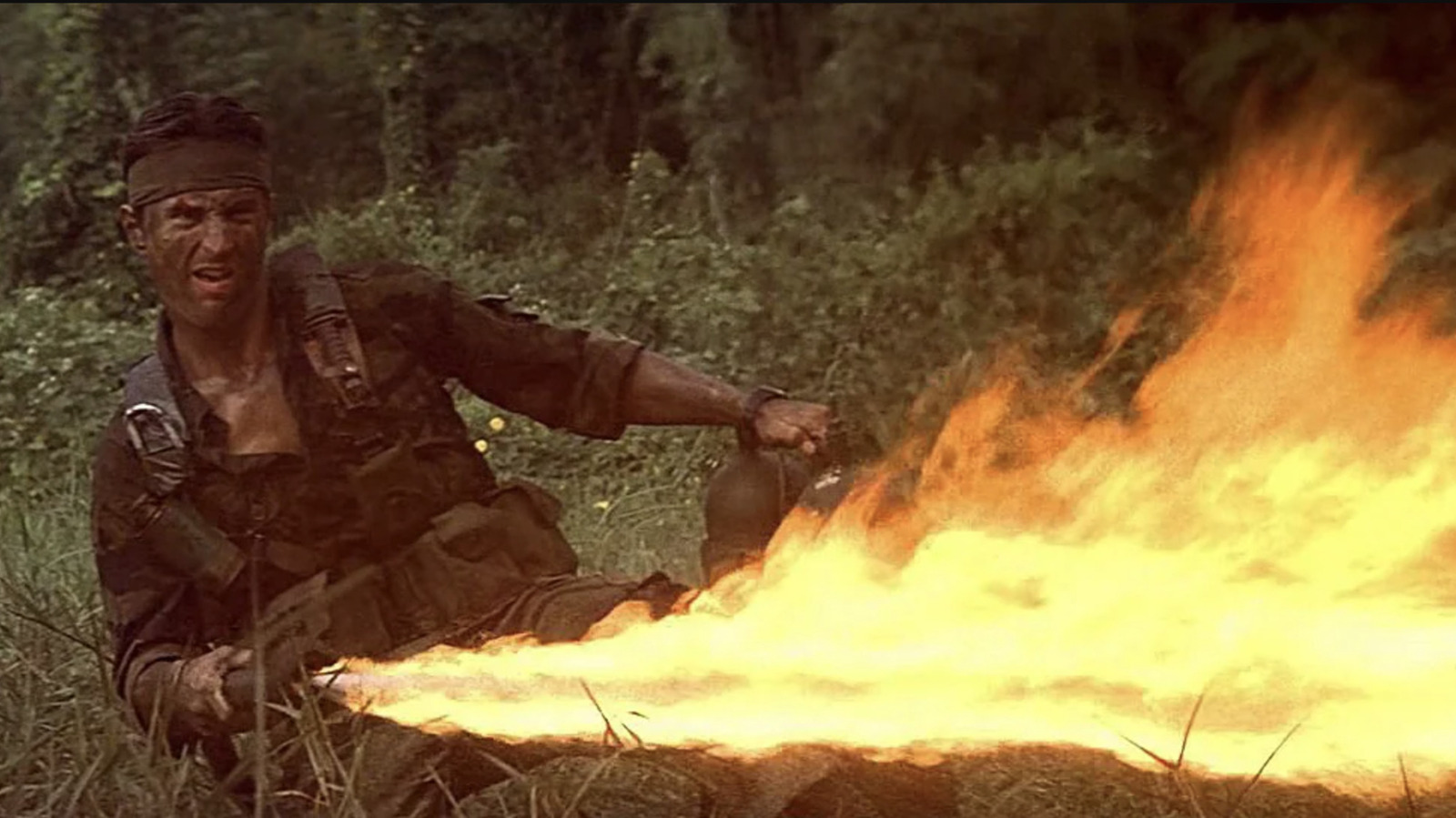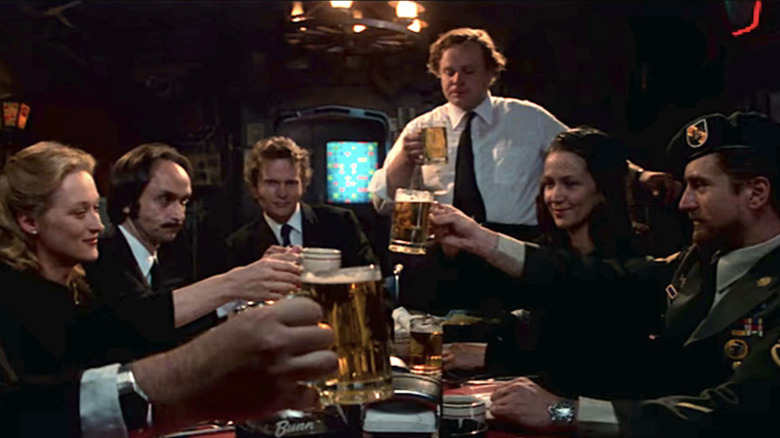As Peter Biskind’s 2008 piece about “The Deer Hunter” and “Coming Home” at the 1979 Oscars in Vanity Fair details, producer Barry Spikings bought “The Man Who Came to Play” for EMI, and couldn’t figure out how to make it until he met with Cimino. According to Spikings’ recollection, the director succinctly solved that problem:
Advertisement
“You know why you’re obsessed with [that script]? It’s because the Russian roulette is a metaphor for what America was doing with its young people, sending them to a war in a foreign place, when there was no justification for it. I know something about Vietnam, and I’ve always wanted to do a movie about it. Are you up for it?”
Spikings’ answer was a resounding yes, and Cimino’s “The Deer Hunter” got underway. Yet the story grew, and so did the shooting schedule and budget, so much so that there was controversy surrounding the film before a cut was ever completed. Once a version of the finished movie existed, it screened for executives at Universal Pictures, who owned the rights to the film’s domestic distribution. When Lew Wasserman (head of Universal’s then-parent company MCA) and Sid Sheinberg saw the film, their reception of it was especially bad. According to Spikings:
Advertisement
“I think they were shocked…They really didn’t like the movie. And they certainly didn’t like it at three hours two minutes.”
In addition to the controversy over the film’s political content (more on that in a second), the executives subscribed to what became a popular notion, that Cimino’s film was too lengthy, especially the first half, where the main characters attend a wedding of one of their buddies, just before many of them are sent to Vietnam. While myself and other aficionados of the film find this criticism erroneous, it was something that nearly prevented “The Deer Hunter” from being released at all. As Spikings recalled, Sheinberg gave him and Cimino an ultimatum:
“You’ve got to get one hour out of this movie—then we might think about releasing it.”


